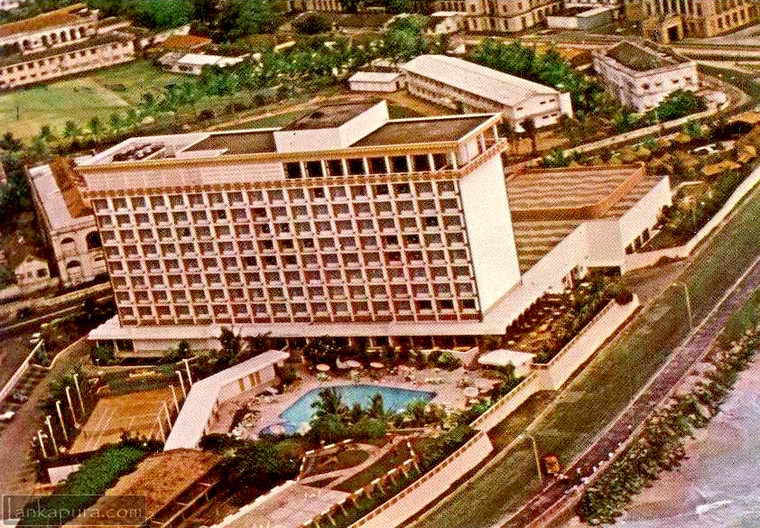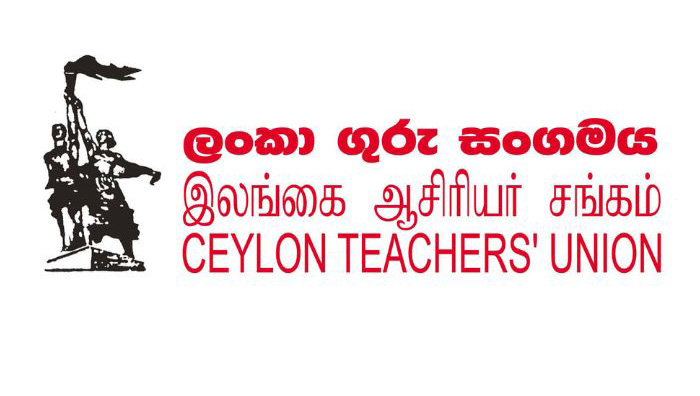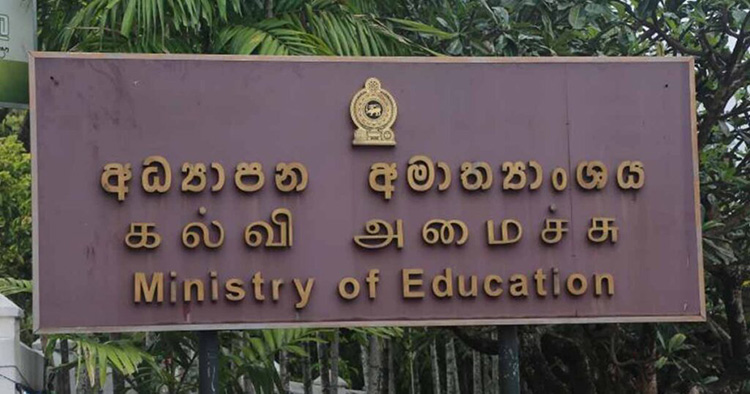News
Buying and selling Hotel Ceylon Inter Continental

Those who once couldn’t afford to buy a visitor lunch at the hotel, eventually bought hotel!
(Excerpted from Simply Nahil: Maverick with the Midas touch, biography of Nahil Wijesuriya)
While they were operating East West Enterprises (EWE) on the fourth floor of Ceylinco House, their office overlooked the brand new Intercontinental Hotel, the first five-star hotel in town with five-star prices. Whenever they had guests from overseas visiting the office. especially closer to noon, the courteous thing to do was to offer them lunch, which they did, inquiring from the guest as to where they would like to eat, while holding their breath hoping they wouldn’t choose a restaurant at the Intercontinental. Being a small operation of five, Lester, his niece Anne, Secretary Feroza, Man Friday Farook and Nahil, their petty cash did not stretch enough to afford a meal at the Intercontinental. However. a few years later their petty cash stretched far enough to buy the hotel, which they did!
Acquiring and Sale of the Hotel Ceylon InterContinental
Kumar Sharma, an Indian living in Sri Lanka, owned the hotel which he had acquired from the Intercontinental chain. Vijitha, Nahil’s son, was a schoolmate and a great friend of Sharma’s son, Sandeep. The young man, was an amiable lad, who would occasionally stay over at Nahil’s. His father enrolled him at the best hotel school in Switzerland to follow a three-year course in Hotel Management; regrettably he returned to Colombo after three months, affirming to his dad that he was not interested in hotel management or any related field.
Sharma had bought the hotel from the Intercontinental chain sometime before, envisioning his son would take over and operate the hotel after his graduation in Switzerland. Considering his son’s decision, all his grandiose plans for the lad went awry. Disappointed, he offered to sell the hotel to Nahil.
Lanka Securities was the brokers of the transaction. The price Sharma quoted seemed like a good deal; interested, Nahil inquired of him if he had any debt, to which he replied, “What debt? I have 10 billion cash surplus.” Nahil bought the hotel with no financial due diligence, nor physical due diligence. He managed to raise the necessary cash, buying the hotel without even visiting it; this was an honest deal between two friends.
On acquiring the hotel he did some refurbishing, getting the hotel ready for the market place, although the civil war was slowing things down on the tourism front. The Central Bank had erected a massive barrier almost opposite the entrance into the hotel, subjecting hotel visitors to double security checks, one at the roundabout and the other at the barrier. Prasanna Jayawardena of Elephant Corridor fame, a college mate of Nahil’s, was visiting the Governor of the Central Bank and invited Nahil to tag along so he could state his case concerning the excess security barrier opposite his hotel.
As Nahil tried to explain to the Governor the inconvenience faced by visitors to the hotel due to the two security checks three meters apart, he humbly requested him if possible to intervene and make it a single check. The Governor got aggressive and said something to the effect of “Do you want me to get fully checked?” – meaning ‘I can make it worse for you’. That was frustrating. You go to him for a solution and he becomes the problem. As a rebuttal, Nahil was about to say something nasty to the man, when Prasanna anticipated his mood and kicked him under the table as a sign to keep his mouth shut.
They were in this huge room which had a cupboard in one corner. When the man opened the cupboard to get something, Nahil noticed that it held a large number of fancy suits whereas Nahil expected to see a library of books pertaining to finance.
Nahil made vast improvements on a barrage of mistakes he found in the hotel structure – the steps were the wrong size and the plumbing messed up, among a host of other sundry mistakes. In addition, auxiliary repairs were carried out wherever necessary.
Meanwhile, the Ports Authority, which was on the lookout for a building to purchase as an office complex, made an offer to buy the hotel for this purpose. Nahil’s Secretary at the time was Surani, whose husband knew the bigwigs of the Ports Authority. Acting as a broker, he was aggressively trying to get the deal together based on the price quoted to him. Nahil maintained he would sell only if he got his price.
The Sunday Leader got a hold of the story and ripped it to bits with the headlines, ‘Why is the Ports Authority trying to buy a 5-star hotel to use as an office?’ The Tuesday after the article appeared, he happened to meet Mahinda Rajapaksa in the lobby of the hotel. on his way out from a wedding. Greeting him. ‘MR says. “What’s this story that you are trying to sell the hotel, Nahil? Are you crazy? Hang on to it, the real estate price is going to skyrocket in the near future.” Nahil took his advice and held on. He reckons MR was his best financial consultant. better than his bank. Suddenly the war was over and the value of the hotel doubled!
Nimal Perera, and Margu Murugeswaran, with the help of Dhammika Perera, made a bid for the hotel. East West owned 95% of the whole business, though it was a public quoted company. The public holding was negligible. Hayleys, due to a shortage of finances, bought the controlling interest of the hotel whilst the balance was sold in the open market, which was arranged by Nimal Perera. Hayleys may have bought the bulk of the remaining shares subsequently. Every time your total holdings go beyond 30% you have to make a general offer to the other shareholders to buy at the same price.
After Nahil sold Hotel Intercontinental to Hayleys which bought 51% of the shares, Nahil remained the Chairman of the Hotel until Hayleys made a general offer, after which the old Board appoints a new Board while the former retires, giving time for the remaining 49% shares to be listed at the CSE. Nahil realized he had not been paid his monthly stipend of Rs. 1 M for three months, and inquired from Mohan Pandithage as to why he was not being paid.
Mohan was brash and told him that his claim for the Rs. 1 M ceased the day he bought the hotel from Nahil. His Rs. 3 Million is still outstanding. Niraj Deva Adittiya got himself appointed to the new Board of Directors and always uses the Presidential Suite whenever he arrives for a Board meeting. Though he has done nothing he still uses the Presidential Suite.
News
Teachers’ unions ‘ready to bring govt. to its knees’

Teachers, principals up in arms against alleged NGO driven education reforms
Teachers, principals and education professionals on Friday vowed to commence a nationwide campaign against the government’s plans to reform the education sector at the expense of what they described as cultural values.
President of the All-Ceylon United Teachers’ Association Ven Yalwala Pannasekera thera addressing a press conference yesterday said that trade unionists would join forces to urge the government to withdraw its educational reforms.
“We are ready to form a common front with education professionals, teachers and principals against this government. We demand that the government withdraw these reforms or get ready to go home,” Ven Pannasekera said.
“Some modules promote homosexuality. Contents in some of the modules being distributed have been copied from Indian text books.
We ask the government to explain why it had paid the National Education Institute curriculum designers,” Ven Pannasekera said.
Meanwhile, representatives of 16 teachers’ and principals’ unions visited the National Child Protection Authority yesterday to lodge a complaint demanding a probe into the inclusion of materials promoting homosexuality in school books.
Concerns were also raised at a National Sangha Council meeting held in Colombo last week at the Colombo Foundation Institute, organised to discuss the objectives of the proposed reforms.
Addressing the gathering, Professor Venerable Induragare Dhammaratana Thera said the reforms required extensive discussion, consultation with subject experts and consideration of the experience of senior administrators.
He warned that the proposed education reforms could trigger the biggest crisis currently facing the country. “Implementing these reforms in this manner will harm future generations and could even destroy the present government,” he said, likening the process to “forcing a round peg into a square hole.”
News
Education Ministry drops idea of extending school hours

The Ministry of Education on Friday decided not to extend school hours for the 2026 academic year, citing the ongoing impact of recent disasters on schools and transport systems in several provinces.
According to the Ministry, school hours for Grades 5 to 13 will remain unchanged at 7:30 a.m. to 1:30 p.m. until both education and transport networks are fully restored.
Government schools, government-approved private schools, and pirivenas are set to begin the first term of 2026 on January 5. Students in Grades from 6 to 13 will have seven 45-minute periods a day.
Education reforms will be introduced for Grades 1 and 6 in 2026.
The Ministry confirmed that activity books for Grade 1 and learning modules for Grade 6 will be distributed before lessons begin. Textbooks for all other grades have already been fully handed out.Meanwhile, the remaining sessions of the 2025 G.C.E. Advanced Level examination are scheduled to take place from January 12 to January 20, 2026.
by Chaminda Silva ✍️
News
SLRC to disburse Rs 2420 mn in relief funds to 28,000 families

The Sri Lanka Red Cross Society will provide relief funds totaling Rs. 2,420 million to assist 20,000 families displaced and 8,000 families who have lost their livelihoods due to cyclone Ditwah.
Accordingly, the Society has arranged to give Rs. 1,620 million to 20,000 displaced families, at the rate of Rs. 85,000 per family, and Rs. 800 million to 8,000 families who lost their livelihoods, at Rs. 100,000 per family, Sri Lanka Red Cross Communications Head Navindra Senarathne told the Sunday Island on Friday.
He said the funds for the 20,000 displaced families would be distributed in three instalments.
A total of 20,000 families across the country, including 1,505 families in the Trincomalee District, have been selected for this relief, with beneficiaries identified by the decision-makers of the Sri Lanka Red Cross Society, he added.
In addition, the Society is preparing to install toilet systems in 400 safe centers and provide 15,000 sets of school equipment worth Rs. 7.5 million, Navindra Senarathne told the Sunday Island.
By Sirimantha Rathnasekera ✍️
-

 Sports7 days ago
Sports7 days agoGurusinha’s Boxing Day hundred celebrated in Melbourne
-

 News2 days ago
News2 days agoHealth Minister sends letter of demand for one billion rupees in damages
-

 News5 days ago
News5 days agoLeading the Nation’s Connectivity Recovery Amid Unprecedented Challenges
-

 Features6 days ago
Features6 days agoIt’s all over for Maxi Rozairo
-

 Opinion4 days ago
Opinion4 days agoRemembering Douglas Devananda on New Year’s Day 2026
-

 News6 days ago
News6 days agoDr. Bellana: “I was removed as NHSL Deputy Director for exposing Rs. 900 mn fraud”
-

 News5 days ago
News5 days agoDons on warpath over alleged undue interference in university governance
-

 Features6 days ago
Features6 days agoRebuilding Sri Lanka Through Inclusive Governance













